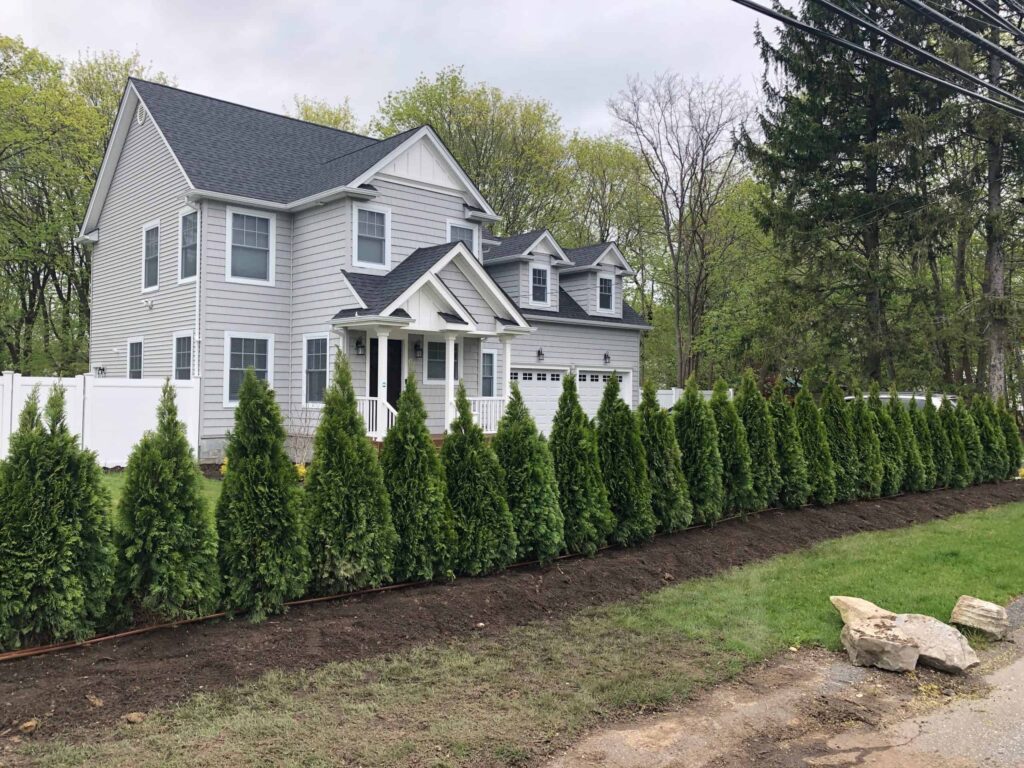Selecting the right privacy trees for your backyard involves considering factors such as your location, soil type, climate, and the specific purpose you want the trees to serve. Here are some popular options that are commonly used for creating privacy screens:
- Arborvitae (Thuja occidentalis): This evergreen tree is a popular choice for privacy screens due to its dense foliage and tall, narrow growth habit. There are various cultivars available, such as ‘Emerald Green’ and ‘Green Giant,’ each with its own characteristics.
- Eastern Redcedar (Juniperus virginiana): This native evergreen is known for its aromatic foliage and can be an excellent choice for creating a dense privacy barrier. It’s hardy and adaptable to various soil conditions.
- Leyland Cypress (× Cuprocyparis leylandii): These fast-growing evergreens are often used for quick privacy screens. They have a tall and narrow growth habit, but they do require regular maintenance to prevent disease and maintain their shape.
- Holly (Ilex spp.): Certain holly species, such as American Holly (Ilex opaca) and Nellie Stevens Holly, have dense foliage and can provide good privacy. Holly trees often have attractive berries and are generally low-maintenance.
- Cryptomeria (Cryptomeria japonica): Also known as Japanese cedar, Cryptomeria is an evergreen tree with a pyramid shape. It’s a good option for creating a tall and elegant privacy screen.
- Emerald Green Arborvitae (Thuja occidentalis ‘Emerald Green’): This is a popular cultivar of arborvitae known for its vibrant green color, dense foliage, and slender growth habit. It’s a good choice for narrow spaces.
- American Hornbeam (Carpinus caroliniana): If you prefer a deciduous option, American Hornbeam, also known as musclewood, can be a good choice. It provides privacy in the spring and summer and allows more light through in the winter when it loses its leaves.
- Cherry Laurel (Prunus laurocerasus): This broadleaf evergreen is known for its lush, glossy foliage and fast growth. It can be a good choice for creating a dense screen, but it’s important to note that some people may be allergic to the scent of the leaves.
When choosing privacy trees, consider factors such as the desired height of the screen, growth rate, maintenance requirements, and any specific aesthetic preferences you may have. It’s also a good idea to check with local nurseries or horticulturists to get recommendations based on your specific location and climate.

